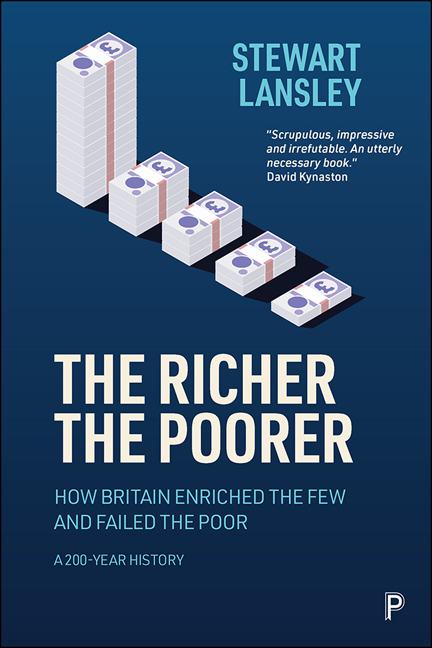Book contents
- Frontmatter
- Miscellaneous Frontmatter
- Dedication
- Epigraph
- Contents
- List of figures
- Preface and acknowledgements
- Introduction: Knighthoods for the rich, penalties for the poor
- PART I 1800–1939
- PART II 1940–59
- PART III 1960–79
- PART IV 1980–96
- PART V 1997–2010
- PART VI 2011–20
- Afterword: COVID-19 and ‘the polo season’
- Notes
- Index
Afterword: COVID-19 and ‘the polo season’
Published online by Cambridge University Press: 13 May 2022
- Frontmatter
- Miscellaneous Frontmatter
- Dedication
- Epigraph
- Contents
- List of figures
- Preface and acknowledgements
- Introduction: Knighthoods for the rich, penalties for the poor
- PART I 1800–1939
- PART II 1940–59
- PART III 1960–79
- PART IV 1980–96
- PART V 1997–2010
- PART VI 2011–20
- Afterword: COVID-19 and ‘the polo season’
- Notes
- Index
Summary
At least initially, COVID-19 had a galvanising impact on the national mood. A pandemic is one of Walter Scheidel's ‘Four Horsemen’, associated historically with a shift towards equalisation. While earlier jolts, including the 2008 crisis and a decade of austerity, had largely failed to ignite a ‘1945 moment’, the sacrifices from COVID-19 certainly created, at least initially, a momentum for change. ‘The present crisis seems destined again to change the face of Britain, unleashing demands for social, political and economic reform unprecedented in our memories’, declared the former editor of the Daily Telegraph Max Hastings. ‘The polo season, figuratively speaking, is over.’
An initial and important side-effect of COVID-19 was a change in the terms of the debate about how society should function. The pandemic exposed the flaws in Britain's social protection system, while within a matter of weeks, views on who the most valuable workers are and which activities count were being overturned. Simon Henderson, the headmaster of Eton, told the Times: ‘Many of those who work in the lowest-paid roles are in fact the key to our survival, and these people who have been undervalued for so long have shown astonishing dedication when we have needed them the most. That can't just be forgotten.’ British Vogue, on its July covers, featured not models but a train driver, a midwife and a supermarket shop assistant.
As the pandemic took hold, key pillars of neoliberal orthodoxy began to crumble. New questions emerged about the nature and purpose of economic activity. The epidemic challenged a decade of fiscal conservatism, while a new consensus emerged that despite the growing national budget deficit, there should be no return to austerity. The midst of a pandemic ‘is no time for Britain's government to worry about a spiralling deficit’, declared the Financial Times. Despite the Conservative Party's dislike of the state, the Johnson government responded with a series of widely welcomed measures, from the furlough scheme aimed at preserving jobs to a slightly more generous universal credit. Unlike the 1930s and 2010, ministers accepted the need to improve the protective role of the state and cushion the impact of the virus on households.
- Type
- Chapter
- Information
- The Richer, the PoorerHow Britain Enriched the Few and Failed the Poor: A 200-Year History, pp. 248 - 252Publisher: Bristol University PressPrint publication year: 2021



